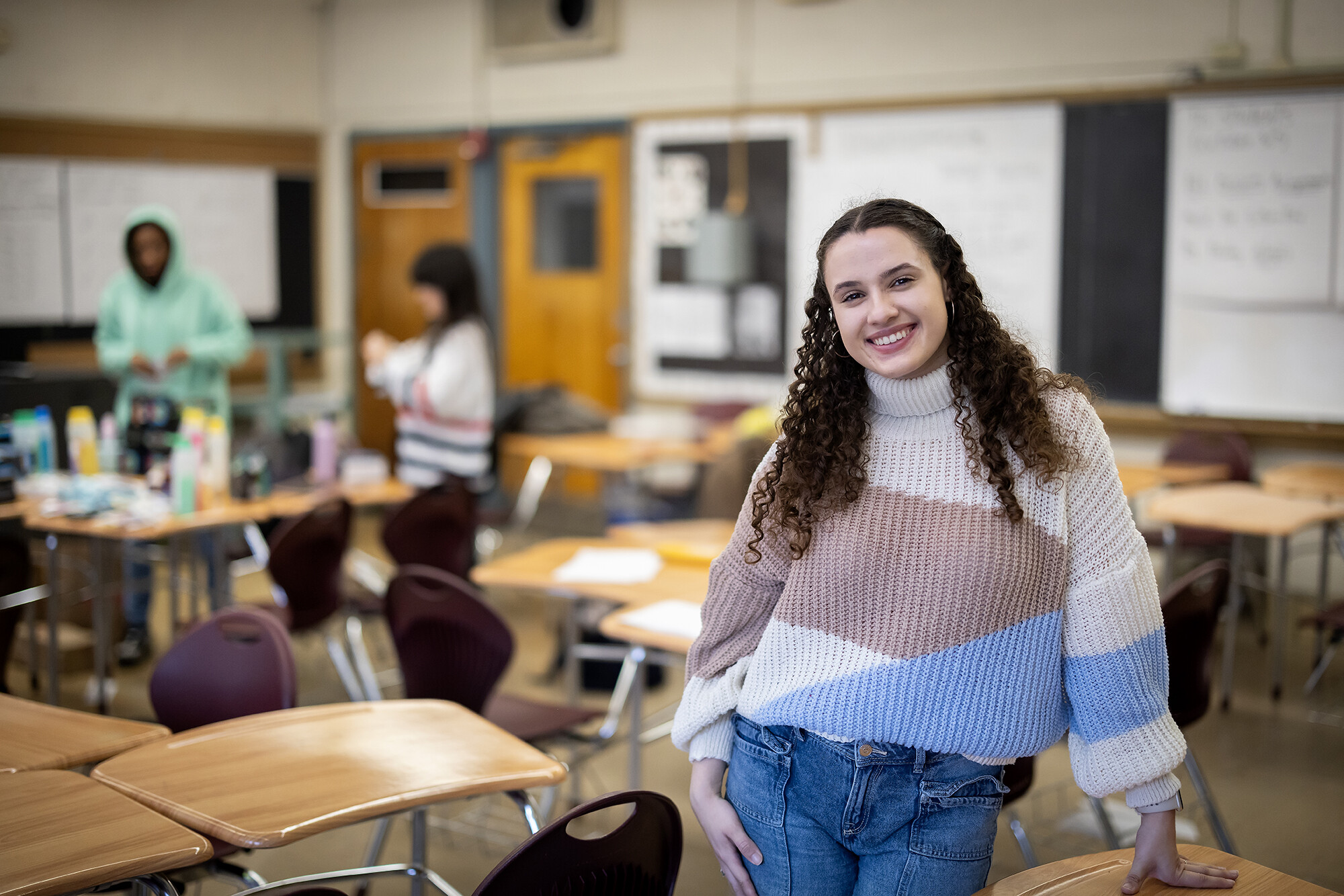
(From left) Doctoral student Hannah Yamagata, research assistant professor Kushol Gupta, and postdoctoral fellow Marshall Padilla holding 3D-printed models of nanoparticles.
(Image: Bella Ciervo)

Never underestimate the power of free food. In the case of Ariana Jimenez of Plainfield, Illinois, it was the lure of pizza that first brought her to a voter registration drive, to sign up to vote in the state primary. “17-year-old me was very into free pizza,” Jimenez says. She also learned how to register high school peers and speak with them about voter education, becoming an election ambassador for her county.
Now a fourth-year student in the Wharton School studying business economics and public policy, with a second concentration in management, Jimenez continues to speak with high school students about civic engagement—this time in West Philadelphia.
While looking for a work-study job in her first year of college, Jimenez saw a posting for the High School Voter Project. Founded in 2020, the summer before Jimenez started, the High School Voter Project is a student-run, nonpartisan initiative supported by Penn’s Netter Center for Community Partnerships that focuses on youth voter registration, civic engagement, and education. The program also promotes forms of advocacy beyond voting, especially to engage students under 18, including opportunities to speak with local legislators and to run campaigns at their school.
On Thursdays, Jimenez goes to Sayre High School, where the High School Voter program focuses on pre-professionalism, teaching them interviewing and email writing skills in addition to civic engagement. During these sessions, Jimenez and other volunteers mentor use a problem-solving approach to tackle issues the students identify: gun violence, the affordability crisis, and improving public schools.
Jimenez says the mentoring focuses on current events and community issues the students care about, which helps the Sayre students understand how voting impacts their lives. She points to an example when the high school students offered their thoughts about public transit citing concerns about safety, timeliness, and cleanliness. The team, says Jimenez, turned it around to address how voting impacts public policy.
Asking the students, “Who’s in charge of making those decisions?” helped them realized that the SEPTA board is partially appointed by the Philadelphia mayor and city council, Jimenez says, drawing “connections to how who they vote for actually directly impacts their lives.”
She is passionate about the work. “Voting is fundamental to have a say in everything that goes on in this country,” Jimenez says. “That’s why it’s essential that all communities have voter access.”
Kristina Linnea García

(From left) Doctoral student Hannah Yamagata, research assistant professor Kushol Gupta, and postdoctoral fellow Marshall Padilla holding 3D-printed models of nanoparticles.
(Image: Bella Ciervo)

Jin Liu, Penn’s newest economics faculty member, specializes in international trade.
nocred

nocred

nocred